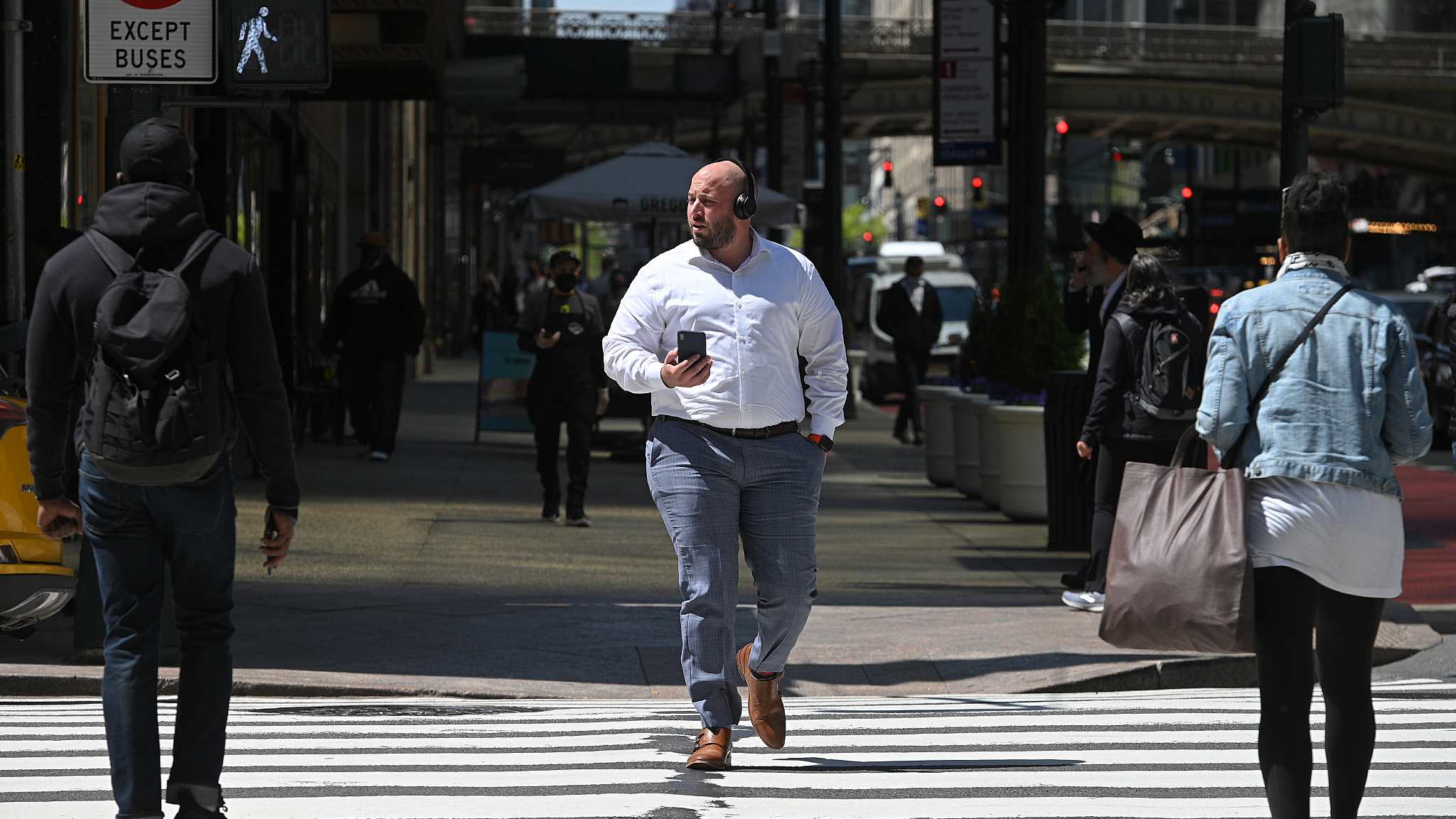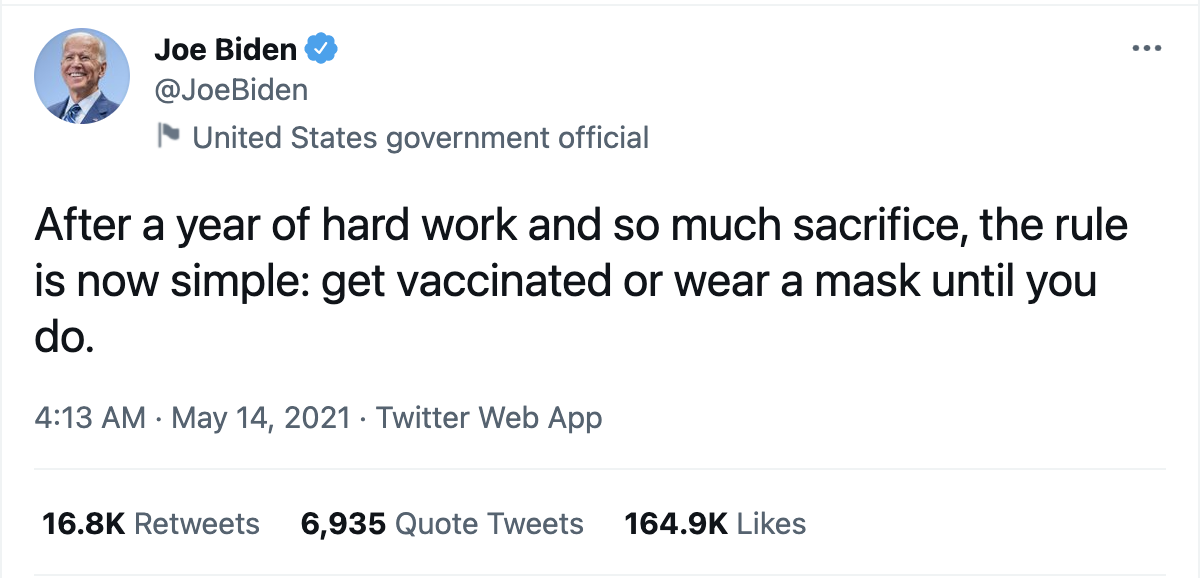
People are seen on a street after the CDC eases mask-wearing guidance for fully vaccinated people, in Manhattan, New York, U.S., April 27, 2021. /CFP
People are seen on a street after the CDC eases mask-wearing guidance for fully vaccinated people, in Manhattan, New York, U.S., April 27, 2021. /CFP
Editor's note: Bradley Blankenship is a Prague-based American journalist, political analyst and freelance reporter. The article reflects the author's opinions and not necessarily the views of CGTN.
The American Centers for Disease Control and Prevention (CDC) made a huge mistake in May when it lifted its mask-wearing recommendations – and now it's paying the consequences of that decision.
The CDC on July 27 walked back its recommendations saying that vaccinated people could forego mask-wearing. Instead, the CDC now recommends that people wear masks indoors in areas with "substantial" and "high" transmission of COVID-19, which is at this point a majority of counties in the country.
This is not just a PR disaster for the CDC that could have been easily avoided, but an all-around poor public health policy. That's because the CDC's decision in May to lift mask-wearing recommendations was premature, not based on science, and was clearly just a carrot to nudge more Americans to get vaccinated.
U.S. President Joe Biden had basically presented things like this, promising that things would go back to normal for people who got vaccinated. For example, he tweeted on May 14, "After a year of hard work and so much sacrifice, the rule is now simple: get vaccinated or wear a mask until you do."

Well, that rule is now more complicated – and people are predictably ticked off about it.
For starters, the decision by the CDC in May to recommend that vaccinated people forego masks in most situations was silly to begin with. That's because science, particularly in medicine, tends to almost always err on the side of caution. The CDC's shift in May was the exact opposite of cautious.
Because of the fact that no one is actually checking vaccination status and the U.S. doesn't even have a federal COVID-19 passport program, it just opened the door for people to lie about their status and continue spreading the virus. As much as we might like to be idealistic and believe that our fellow citizens are socially responsible, that's just not the case – and experts warned about how this could be a problem at the time.
There's also the issue of emerging variants, which should have always been a part of the CDC's cautious decision-making. By and large, studies suggest that current vaccines work effectively against existing variants of SARS-CoV2 – but the potential breakthrough infections can never be ruled out, plus the ongoing spread of the virus means new variants that could evade an immune response might emerge.
As an April article in The Lancet medical journal discusses, the possibility for "vaccine breakout" is highly dependent on the background incidence of the disease. According to the article, even at infection rates at the time (which are actually higher now), there's about a 60 percent probability of vaccine breakout within 6 months. That's pretty alarming and something the federal government should be taken seriously.
Unfortunately, the White House hoped that making things easy, namely, get vaccinated or continue to wear a mask, would push people to get vaccinated. The problem, however, has always been that the people most against vaccines are also against masks, which meant that this category of people was never bound to follow either rule. It meant that telling people that they could ditch masks upon getting vaccinated was never a good incentive in the first place.
After the decision to go all-in on this CDC recommendation, however, Biden's team should have at least designated someone to counter pandemic disinformation in order to help boost vaccination rates. While it's true that some individuals, like Vice President Kamala Harris, launched vaccination drives and tried to educate certain communities – this is not the same as outright countering some of the dangerous, conspiratorial, and downright false narratives about vaccination floating around social media these days.
In the end, things went the direction that they always do – which is, basically, that the federal government leaves everything up to "personal responsibility" and then people act irresponsibly which then forces a slight government response, people accuse the government of overreach and then the cycle of distrust continues.
The CDC should have just never opened these floodgates to begin within May because it was never going to work as intended. This is now yet another devastating blow to the credibility of public health officials that could have been so easily avoided.
(If you want to contribute and have specific expertise, please contact us at opinions@cgtn.com.)

